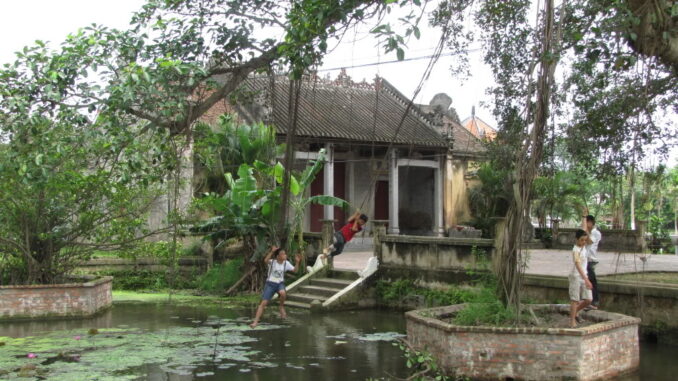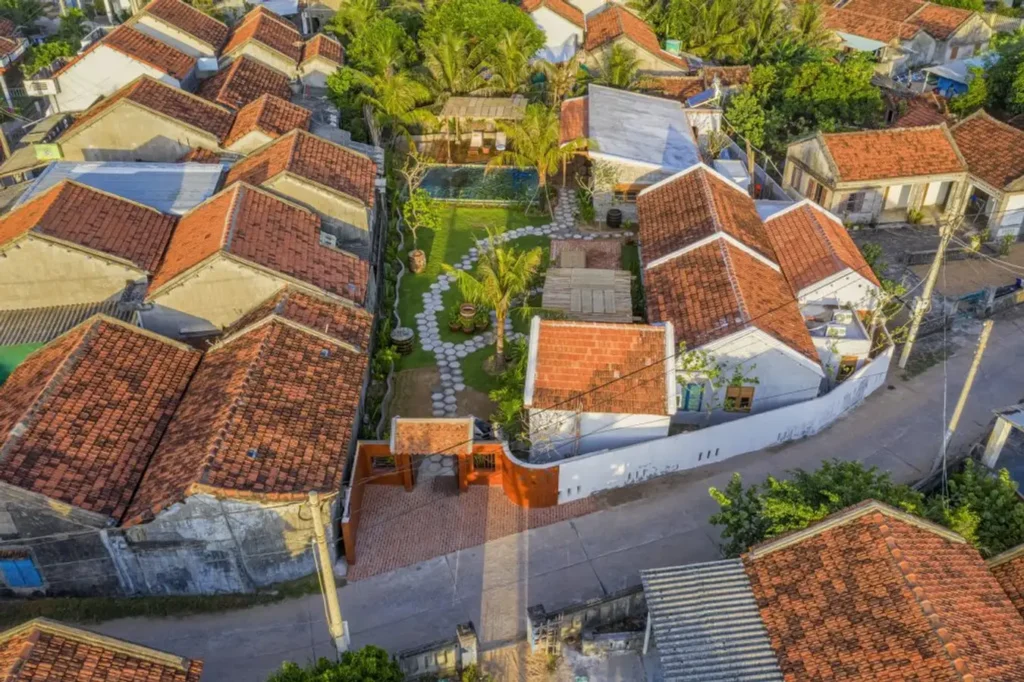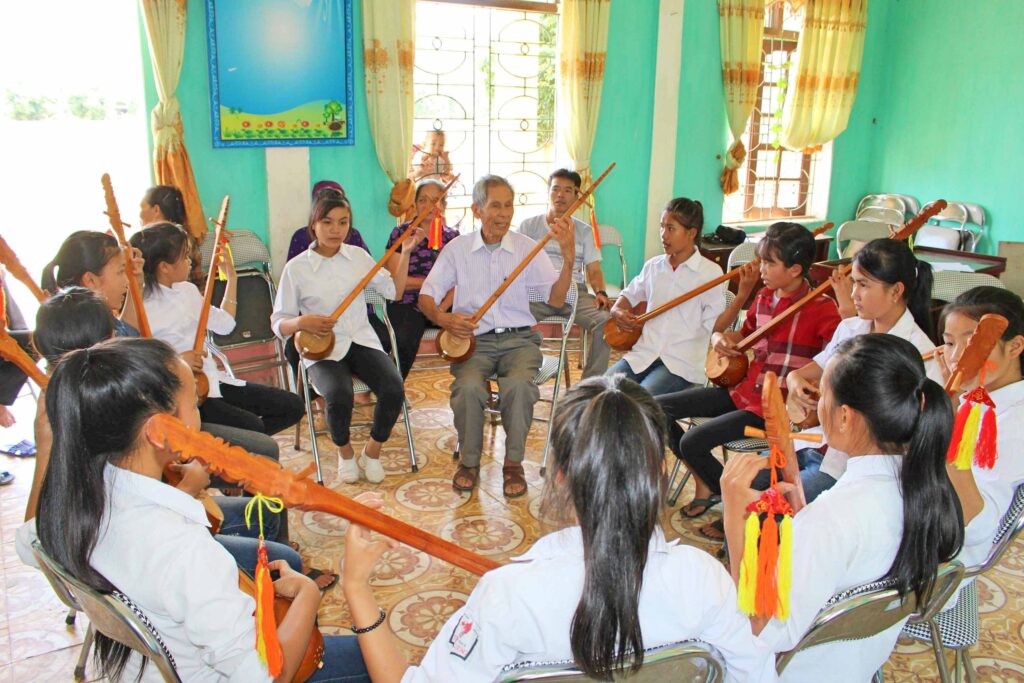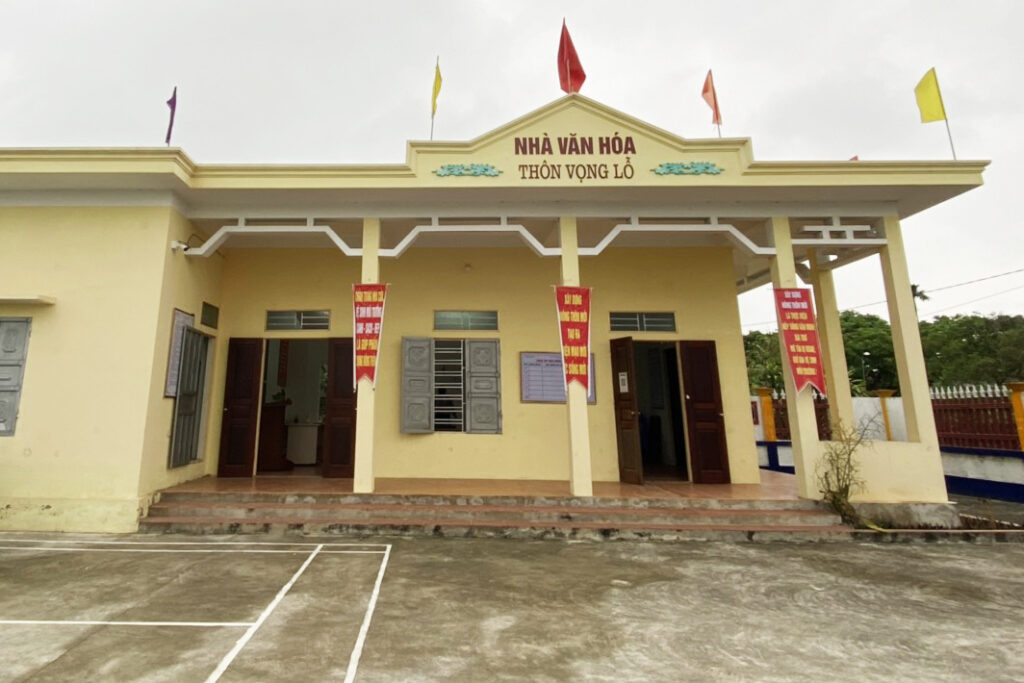
Village culture is an important component taking part in creating Viet Nam cultural identity. Being a typical agricultural country, people’s lives must depend much on natural conditions, thus, for existence and development, owners of Viet Nam villages that are peasants in the majority must rely on and link to each other’s. That’s why, communal character has been regarded as the first cultural characteristic of Viet Nam villages. This has been formed through close organization with many different rules.

The establishment is based on resident areas to be hamlets and villages. This originated from the agricultural environment. Because wet rice cultivation demands a big labour force, Vietnamese peasants not only bear themselves but also assist each other. In order to cope with the social environment such as robbing… It is necessary to cooperate to make an effect. Vietnamese people cannot live without relatives as well as without neighbours. The organization based on habitat creates democracy and equality between man and man. This is regarded to be the primary democratic form – village democracy.
Countryside is also organized into guilds according to interests and vocations. In order to link persons who have the same vocation, guilds are set up such as pottery guild making ceramics, fishing guild, cloth guild weaving cloths, plaster guild doing constructional guild….
Beside patterns mentioned above, Viet Nam villages are as well held up to administrative units to be hamlets and communes. Commune is another calling of village and hamlet is another name of subdivision of a village in terms of administration. One commune sometimes may consist of a few villages and a hamlet may include some subdivisions.

In a commune, there is often an existence of apparent discrimination between principal people and aliens. People whose origins are in a village are called principal ones and people coming from other regions are called aliens. This discrimination is very sharp. While principal people enjoy all rights and interests, aliens are often treated without any respect. This opposition is really aimed at restricting peasants to separate from their homes and also limiting aliens to come to live in a village. Therefore, this discrimination is considered to be a means for maintaining the stability of a village.
The ground of the communal house, water wharf, banyan trees, have been regarded as a traditional symbol of community. Every village has its own communal house. This is the place at which every respect in village life focuses most. All important works of the village take place here, so, the communal house is an administrative center. It is also the place where festivals, performances of “tuong cheo” (kinds of old art) are held…, so, it is a cultural center. It is the place for worshiping the tutelary spirit, the patron god of the whole village. The destiny of the village is determined by terrain, the communal house’s aspect, so the communal house is the center of religion. And finally, it is also the sentimental center because both persons who are living and expatriates remember the communal house with all beloved sentiment each time thinking of their villages.

All cultural characteristics mentioned above mainly appear in villages of the Northern plain. Under the rule of the Nguyen Kings, the Southern plain was exploited. This created more new traits for Viet Nam villages. However, in spite of having different features from Northern villages Southern villages still have bamboo, communal houses for worshiping tutelary and have festivals.
Visiting a Vietnamese village is more than just admiring the scenery; it’s about connecting with the people and experiencing their way of life. Learn a few basic Vietnamese phrases, try your hand at traditional crafts, and savor the flavors of local cuisine. These experiences will leave you with a deeper appreciation for the beauty and richness of Vietnamese village life.
Vietnam warmly welcomes you to enjoy Vietnamese cuisine and culture and to make your trip go smoothly as the very first step, make your plan into reality by obtaining a Vietnam visa at https://www.vietnam-evisa.org.